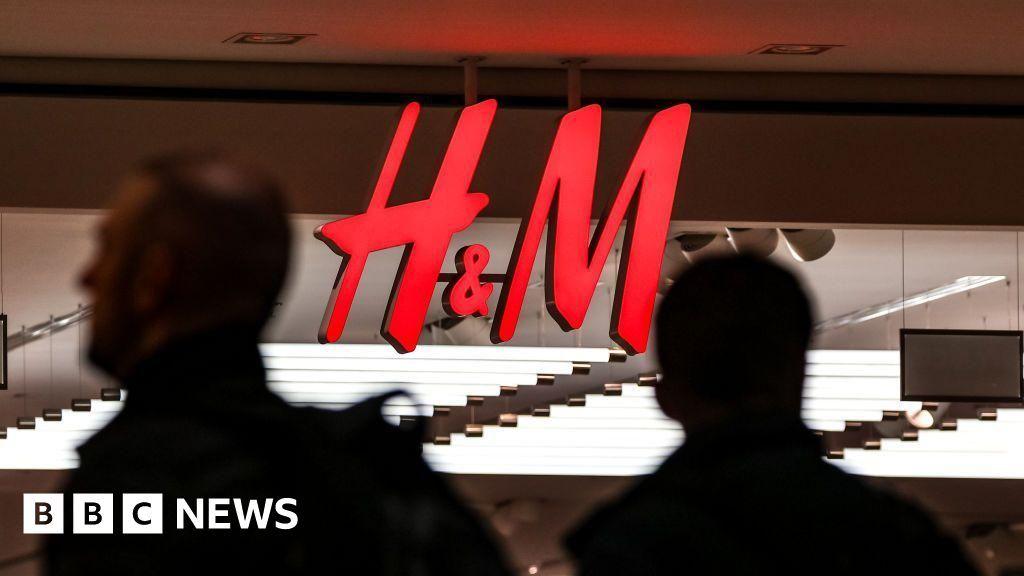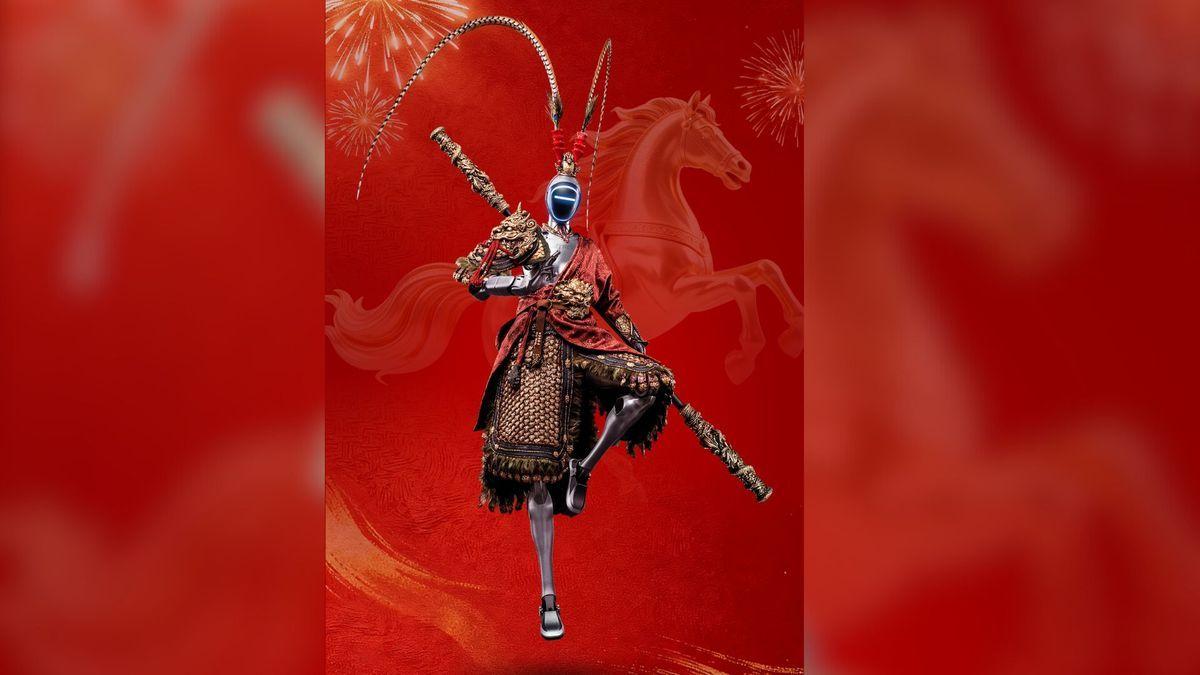Zalando Revolutionizes Fashion Marketing with AI: Faster Campaigns, Lower Costs
2 Sources
2 Sources
[1]
Zalando uses AI to speed up marketing campaigns, cut costs
LONDON, May 7 (Reuters) - European online fashion retailer Zalando is using generative artificial intelligence to produce imagery faster for its app and website, it said on Wednesday, as AI shakes up the fashion industry and cuts costs. Zalando, which sells branded clothes, shoes, and accessories across 25 markets in Europe, is using AI to produce imagery quickly enough to respond to short-lived fashion trends spread on social media. It is also developing AI-generated "digital twins" of models to use in its marketing. "We are using AI to be able to be reactive," Matthias Haase, vice president of content solutions at Zalando, told Reuters in an interview. Using generative AI cuts the time needed to produce imagery to around three to four days from six to eight weeks, and reduces costs by 90%, Haase said, adding the AI-generated content drives greater engagement from customers. "It's not because of AI content that is better than human-created content, it is really about how new, how relevant it is to our customers," Haase added. Around 70% of Zalando's editorial campaign images were AI-generated in the fourth quarter of last year as it has increased use of the technology. AI-generated images illustrated Zalando's recap of the year's biggest trends, including "brat summer", "mob wife", and double denim. For an industry used to costly, meticulously planned fashion shoots on sets or in far-flung locations, the prospect of using AI to speed up production and use marketing money more efficiently is of particular appeal to retailers with far smaller budgets than the big, luxury players. Zalando is the latest retailer to try out AI-generated digital twins of models, after Sweden's H&M (HMb.ST), opens new tab in March said it created digital twins in collaboration with a modelling agency. The AI-generated three-dimensional replicas enable Zalando to feature a model in a campaign and show an exact replica of that model in the app's product pages, without needing to take hundreds of photos. Asked how generative AI could affect job prospects for fashion photographers, Haase said traditional fashion shoots will still be needed, but that photographers and other creatives will also have to adapt to using AI tools. "Creative people fear that AI makes creatives redundant," Haase said. "I don't see that at all, to be honest... I see it rather that creative minds have now, instead of two hands, six hands." Reporting by Helen Reid; editing by Barbara Lewis Our Standards: The Thomson Reuters Trust Principles., opens new tab Suggested Topics:Artificial Intelligence Helen Reid Thomson Reuters London-based reporter covering the European retail sector through a global lens. Focusing on companies including Adidas, H&M, Ikea, and Inditex and analysing corporate strategy, consumer trends, and regulatory changes, Helen also covers major supermarket groups like Ahold Delhaize, Carrefour, and Casino. She has a special interest in sustainability and how investors push for change in companies. Previously based in Johannesburg where she covered the mining industry.
[2]
Zalando uses AI to speed up marketing campaigns, cut costs
Using generative AI cuts the time needed to produce imagery to around three to four days from six to eight weeks, and reduces costs by 90%, Haase said, adding the AI-generated content drives greater engagement from customers. "It's not because of AI content that is better than human-created content, it is really about how new, how relevant it is to our customers," Matthias Haase, vice president of content solutions at Zalando. European online fashion retailer Zalando is using generative artificial intelligence to produce imagery faster for its app and website, it said on Wednesday, as AI shakes up the fashion industry and cuts costs. Zalando, which sells branded clothes, shoes, and accessories across 25 markets in Europe, is using AI to produce imagery quickly enough to respond to short-lived fashion trends spread on social media. It is also developing AI-generated "digital twins" of models to use in its marketing. "We are using AI to be able to be reactive," Matthias Haase, vice president of content solutions at Zalando, told Reuters in an interview. Using generative AI cuts the time needed to produce imagery to around three to four days from six to eight weeks, and reduces costs by 90%, Haase said, adding the AI-generated content drives greater engagement from customers. "It's not because of AI content that is better than human-created content, it is really about how new, how relevant it is to our customers," Haase added. Around 70% of Zalando's editorial campaign images were AI-generated in the fourth quarter of last year as it has increased use of the technology. AI-generated images illustrated Zalando's recap of the year's biggest trends, including "brat summer", "mob wife", and double denim. For an industry used to costly, meticulously planned fashion shoots on sets or in far-flung locations, the prospect of using AI to speed up production and use marketing money more efficiently is of particular appeal to retailers with far smaller budgets than the big, luxury players. Zalando is the latest retailer to try out AI-generated digital twins of models, after Sweden's H&M in March said it created digital twins in collaboration with a modelling agency. The AI-generated three-dimensional replicas enable Zalando to feature a model in a campaign and show an exact replica of that model in the app's product pages, without needing to take hundreds of photos. Asked how generative AI could affect job prospects for fashion photographers, Haase said traditional fashion shoots will still be needed, but that photographers and other creatives will also have to adapt to using AI tools. "Creative people fear that AI makes creatives redundant," Haase said. "I don't see that at all, to be honest... I see it rather that creative minds have now, instead of two hands, six hands."
Share
Share
Copy Link
European online fashion retailer Zalando is leveraging generative AI to dramatically speed up marketing campaigns and reduce costs, transforming the fashion industry's approach to digital content creation.

AI Transforms Zalando's Marketing Strategy
European online fashion retailer Zalando is at the forefront of a technological revolution in the fashion industry, harnessing the power of generative artificial intelligence (AI) to revolutionize its marketing campaigns. The company is utilizing AI to produce imagery for its app and website at unprecedented speeds, allowing it to respond swiftly to ephemeral fashion trends that proliferate on social media platforms
1
.Dramatic Improvements in Efficiency and Cost-Effectiveness
Matthias Haase, Vice President of Content Solutions at Zalando, revealed the transformative impact of AI on their operations. The implementation of generative AI has slashed the time required to produce imagery from six to eight weeks to a mere three to four days. Even more impressively, this technological shift has resulted in a staggering 90% reduction in costs
2
.AI-Generated Content Drives Customer Engagement
Zalando's embrace of AI extends beyond mere efficiency gains. The company reports that AI-generated content is driving greater engagement from customers. Haase emphasized that the success of AI-generated content lies not in its superiority over human-created content, but in its ability to deliver fresh and relevant material to customers quickly
1
.Widespread Adoption of AI in Zalando's Marketing
The extent of AI's integration into Zalando's marketing strategy is significant. In the fourth quarter of the previous year, approximately 70% of Zalando's editorial campaign images were AI-generated. These AI-created visuals were prominently featured in Zalando's recap of the year's biggest trends, including "brat summer," "mob wife," and double denim
1
.AI-Generated Digital Twins: The Future of Fashion Marketing
Zalando is also venturing into the realm of AI-generated "digital twins" of models for use in its marketing campaigns. This innovative approach allows the company to feature a model in a campaign and display an exact replica of that model across various product pages in its app, eliminating the need for hundreds of individual photographs
2
.Related Stories
Industry-Wide Implications and Adaptations
The fashion industry, traditionally reliant on expensive and meticulously planned photoshoots, is now facing a paradigm shift. The ability to use AI to accelerate production and optimize marketing budgets is particularly appealing to retailers with more modest budgets compared to luxury brands
1
.The Human Element in an AI-Driven Landscape
While the integration of AI in fashion marketing raises questions about the future of creative professionals, Haase maintains an optimistic outlook. He believes that traditional fashion shoots will continue to have a place in the industry. However, he also emphasizes that photographers and other creatives will need to adapt to incorporate AI tools into their workflow
2
."Creative people fear that AI makes creatives redundant," Haase stated. "I don't see that at all, to be honest... I see it rather that creative minds have now, instead of two hands, six hands." This perspective suggests a future where AI augments human creativity rather than replacing it entirely
1
.References
Summarized by
Navi
Related Stories
Recent Highlights
1
ByteDance Faces Hollywood Backlash After Seedance 2.0 Creates Unauthorized Celebrity Deepfakes
Technology

2
Microsoft AI chief predicts artificial intelligence will automate most white-collar jobs in 18 months
Business and Economy

3
Google reports state-sponsored hackers exploit Gemini AI across all stages of cyberattacks
Technology








